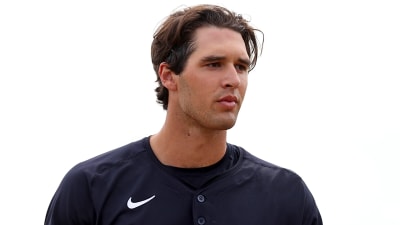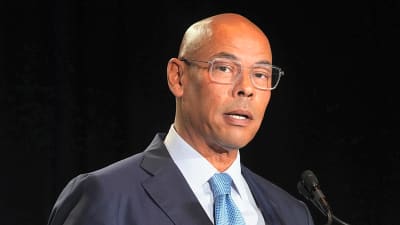
NCAA president Charlie Baker believes that the vast majority of college athletes should be very concerned about the potential of legislation that makes them employees of the schools they attend.
While speaking with reporters at the NCAA’s Washington office on Friday, Baker expressed concern about the lawsuits the NCAA is facing that could potentially result in athletes being classified as employees. Baker estimated that “95 percent” of colleges nationwide simply would not be able to afford sports if that happened.
“You’re talking about 95 percent of colleges that probably spend somewhere between...$40 million and $5 million on college sports, and they lose money,” Baker said, via Fortune’s Ben Nuckols. “They don’t have TV contracts and nobody can look at their income statements or balance sheets and conclude there would be a way for them to make money.”
Baker added that he has had conversations with members of Congress who agree that there needs to be a system established where players’ NIL rights are standardized and there are opportunities for athletes to make money without having to become employees of the schools they attend. Baker believes that can be achieved if Congress grants the NCAA a limited antitrust exemption that allows it to set rules safeguarding college sports without the threat of litigation.
The landscape of college sports has changed dramatically in recent years. Many prominent figures have expressed concerns over the impact the new name, image and likeness rules have had. Baker believes that designating student-athletes as employees could potentially be catastrophic for most athletic departments.
More must-reads:
- An early Top 25 ahead of the 2024 NCAA football season
- 'J Love' to a tackle-breaking horse lover: Five elite college RBs to watch in 2025
- The 'Total touchdown leaders by NFL season since 2000' quiz
Breaking News
Trending News
Customize Your Newsletter
 +
+
Get the latest news and rumors, customized to your favorite sports and teams. Emailed daily. Always free!








